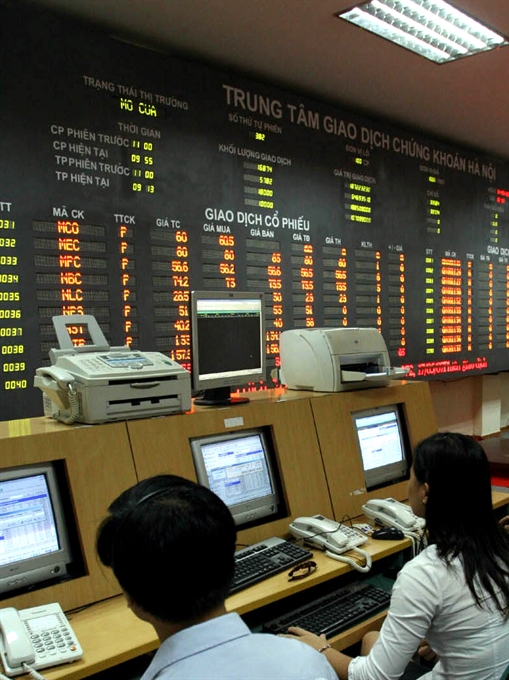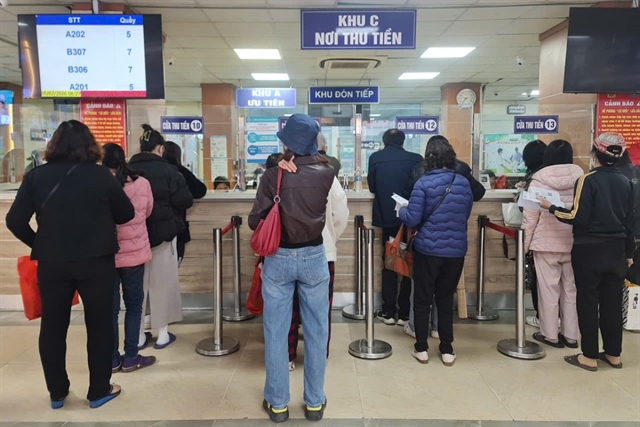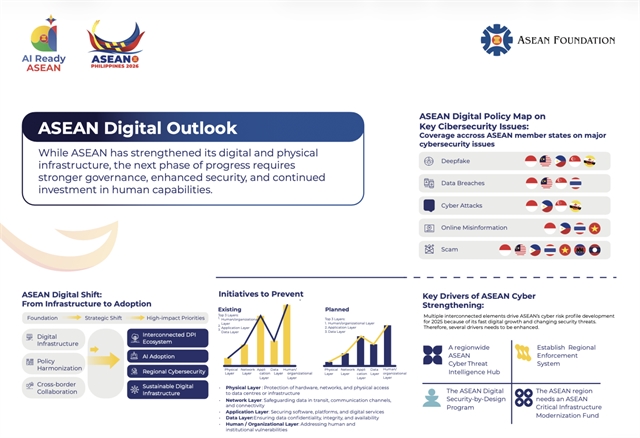 Economy
Economy

Vietnamese shares may remain volatile this week as investors shift focus to the US central bank’s meeting, worrying about a US interest rate increase which could extend net foreign selling of local stocks.
 |
| Vietnamese shares may remain volatile this week as investors shift focus to the US central bank’s meeting, worrying about a US interest rate increase which could extend net foreign selling of local stocks. — VNA/VNS Photo |
HÀ NỘI — Vietnamese shares may remain volatile this week as investors shift focus to the US central bank’s meeting, worrying about a US interest rate increase which could extend net foreign selling of local stocks.
Net foreign selling was the largest reason for the decline of the stock market during the week, as foreign investors were responsible for a nearly VNĐ2 trillion (US$89.7 million) sell value on the two local exchanges, which sank blue chips on the HCM Stock Exchange.
The benchmark VN Index on the HCM Stock Exchange closed down 0.7 per cent on Friday at 651.31 points. Also, the southern market index declined a total of 2.3 per cent during all five trading sessions last week.
The HNX Index, on the smaller Hà Nội Stock Exchange, fell 0.7 per cent to finish Friday at 82.36 points. The northern market index lost 2.5 per cent during the week, with a three-day decline of 1.8 per cent.
Net foreign selling was made on the reallocation of investment portfolios by the two biggest exchange-traded funds (ETFs) – the VNM ETF and the FTSE ETF.
“Many large-cap stocks suffered losses last week, as they were on the must-sell lists of the ETFs, and the decline of the large-cap pulled the market down deeply,” Hoàng Thạch Lân, a securities analyst, said.
“There is still a chance that foreign investors would remain as net sellers this week,” Lân said, adding that should be noticed by investors, especially when net foreign selling could be extended by the US central bank’s meeting, to be held Tuesday and Wednesday, to determine whether it should raise interest rates for the first time since December 2015.
“The US central bank’s meeting will be the focus for the global stock market this week,” Nguyễn Hồng Khanh, head of market analysis at Sacombank Securities Co (SBSC), said. The meeting could determine the flow of investments among developing markets, such as Việt Nam.
Expectations for a US rate hike have pushed the dollar up strongly against the Vietnamese đồng since the beginning of August. Việt Nam’s central bank since August 11 has increased its daily reference mid-point rate for local currency trading between the đồng and the dollar by VNĐ123 to VNĐ21,956 on Friday.
This has become a positive condition for foreign investors to sell local assets and earn some profits, thanks to the rising difference between the đồng and the dollar, “especially when foreigners hold 80 per cent of stakes in the large-cap shares,” Khanh noted.
Investors should also pay attention to energy stocks in their investment portfolios, as crude prices have shown no positive signs of a recovery, both analysts said.
London-traded Brent crude last week plunged 5.3 per cent to close Friday trading at $55.47 per barrel, while US crude West Texas Intermediate dropped more than 7 per cent during the same period.
However, the market could bounce back slightly in the coming days as investors become interested in blue chips, as those stocks have fallen too far during the reallocation of ETFs’ portfolios, the analysts said.
“The ETFs had the strongest re-arrangement of their portfolios in recent years, with selling other stocks to buy the dairy firm Vinamilk (VNM),” SBSC’s analyst Khanh said.
“Though foreign net sell value on Friday was nearly VNĐ1.5 trillion, the absorption from domestic investors helped the VN Index from falling further, and that signaled hope for the stock market.”
“Some blue chips have lost more than 10 per cent of their value and become very attractive to investors,” analyst Lân said, adding that the market would have some “technical recovery sessions”, driven by “bottom pick-up trend of domestic investors”. — VNS




